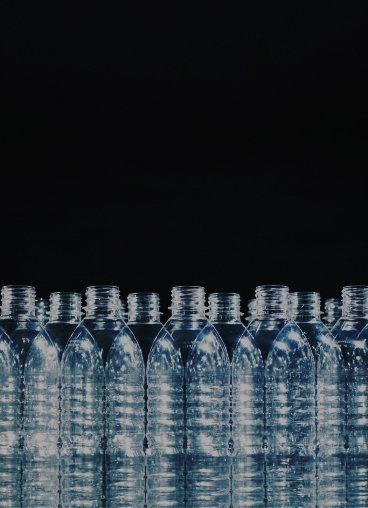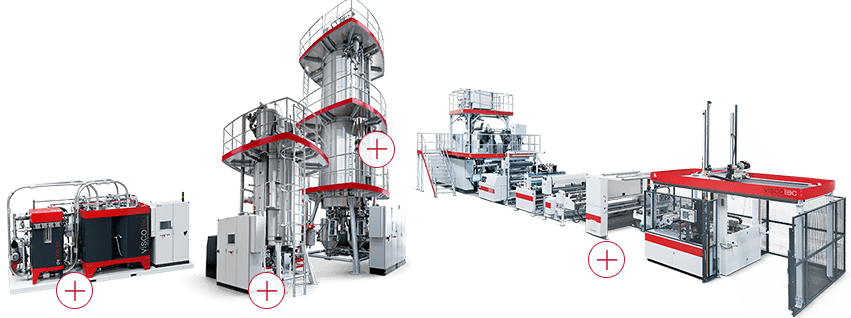In 2012, Australian packaging and resource recovery company, Visy Industries Australia Pty., installed a bottle-to-bottle recycling facility in New South Wales for the food-grade production of PET and HDPE regranulate.
Visy’s PET recycling facility in Smithfield, New South Wales, produces 2,500– 2,900 kg of recycled food-grade pellets per hour and is the first of its kind in Australia. The input material consists of PET and HDPE bottle waste from kerbside, commercial, and industrial waste collection. Visy uses the recycled PET pellets in its own preform production, while the separated food grade HDPE flakes from milk bottles are sold to customers worldwide after undergoing thorough decontamination treatment.
Recycled plastics are
on the up
Several of Visy’s customers already use varying amounts of recycled content (currently 15 %, 30 %, 50 %, or 100 %) in their products, e.g. Schweppes Australia (carbonated soft drinks producer) or Goodman Fielder (dressings, sauces, and vinegars producer). The leading example is the Australian supermarket chain Coles: Their water comes in PET bottles consisting of 100 % recycled PET, also supplied by Visy. Recently, Visy launched the “Re+” logo to label all its recycled PET and HDPE plastic products, making it easy for consumers to identify recycled plastic products and support an environmentally friendly reuse of plastic packaging. The key factor for producing a recycled product suitable for foodcontact packaging is to ensure highest purity and food safety to avoid harming the health of the consumers.
A special task
HDPE food-grade recycling
Visy is currently one of only a few HDPE food grade recyclers in the world. Although demand for food-grade recy-cled HDPE is high, it is extremely difficult to produce. Separate collection streams – e.g. for HDPE milk bottles – are an important prerequisite but only exist in a few countries such as the UK and Australia. Visy uses two deCON contamination reactors for up to 1,500kg/h supplied by Starlinger viscotec in order to produce food-safe HDPE flakes. With the viscotec dynavac treatment (<5 mbar), the boiling temperatures of the residual water and the contaminants are lowered substantially, resulting in excellent drying and decontamination of the material at low temperatures and short retention times. The first-in first-out principle ensures equal treatment time for each single flake before discharge. After extrusion and pelletizing, the HDPE regranulate can be reused in food-contact applications.
www.visy.com.au
DOWNLOAD PDF






